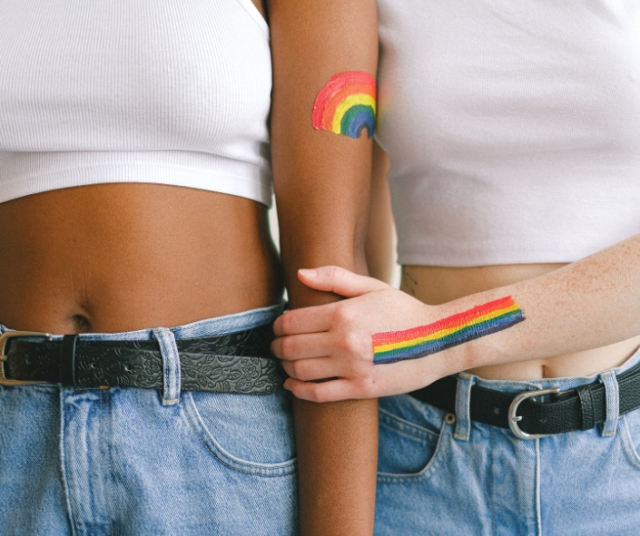LGBT+ Pride Day, also known as Gay Pride Day, is a celebration that takes place worldwide in support of the lesbian, gay, bisexual, transgender and intersex (LGBT+) community. In Spain, this holiday takes on a special dimension, marked by the history of the fight for the rights of sexual and gender diversity.
Origins of LGBT+ Pride Day in Spain
The origins of LGBT+ Pride Day in Spain date back to a crucial period of social and political transformation: the Democratic Transition that followed the end of Francisco Franco's dictatorship. It was in this context of change and openness that the LGBT+ community began to raise its voice in search of equality and rights.
The 1970s marked the beginning of the first demonstrations and public meetings in favor of the rights of lesbians, gays, bisexuals and transgender people on Spanish soil. These events, inspired by the homosexual liberation movements that emerged in the United States in the 1960s, represented a significant milestone in the history of sexual diversity in Spain.
The city of Barcelona was the scene of the first LGBT+ Pride demonstration in 1977, a crucial year during the Democratic Transition. This inaugural date not only commemorated the fight for community rights, but also symbolized the conquest of public spaces to express identity and sexual orientation without fear of reprisals.
June 28 was chosen as the emblematic date for these demonstrations, honoring the Stonewall riots that occurred in New York in 1969. These riots, carried out by members of the LGBT+ community who rebelled against police discrimination, are considered a point of crucial turning point in the history of the movement for the rights of sexual and gender diversity.
During the first years of the celebrations in Spain, the LGBT+ community had to overcome opposition and social stigmatization. However, the bravery of those who participated in the first demonstrations laid the foundation for growing awareness and acceptance.
It is important to highlight that, in its beginnings, LGBT+ Pride Day in Spain was not only an expression of identity and liberation, but also a demand for civil and social rights. The community sought the abolition of discriminatory laws and the construction of a more inclusive society.
Over time, LGBT+ Pride Day celebrations in Spain have evolved beyond street demonstrations to include a series of cultural, social and political events. Colorful parades, concerts, talks, exhibitions and various activities fill the streets of the main Spanish cities throughout the month of June. These events not only celebrate diversity, but also serve as platforms to address crucial issues affecting the LGBT+ community, such as discrimination, violence and lack of rights.
Legal Changes and Advances in LGBT+ Rights in Spain
The legal changes and advances in LGBT+ rights in Spain have been a narrative of progression and recognition of diversity. One of the most notable moments was the legalization of same-sex marriage in 2005, which positioned Spain as one of the pioneering countries in the full recognition of homosexual unions. This milestone marked a fundamental transformation in the perception of Spanish society towards equal rights for the LGBT+ community.
The approval of equal marriage was more than a legal modification; It was a reflection of the evolution of the social and political mentality in Spain. This change not only gave same-sex couples the legal right to marry, but also symbolized a significant step towards normalizing LGBT+ relationships in society. In addition to marriage equality, Spain has implemented laws aimed at combating discrimination based on sexual orientation and gender identity. These measures include anti-discrimination policies in the workplace and education, seeking to guarantee that all people, regardless of their sexual orientation, enjoy equal opportunities and fair treatment.
Another crucial advance has been legislation that allows legal modification of gender identity without pathologizing requirements, recognizing and respecting the gender self-determination of trans people. This change has represented an important step towards building a more inclusive society that is respectful of the diversity of gender identities.
In the field of health, policies and services have been implemented to address the specific needs of the LGBT+ community, recognizing the importance of inclusive and non-discriminatory healthcare. These advances not only have a direct impact on the physical and mental health of LGBT+ people, but also contribute to the destigmatization and normalization of sexual and gender diversity in the field of healthcare.
Despite progress, the LGBT+ community in Spain continues to face significant challenges. Discrimination and violence based on sexual orientation and gender identity still persist. Additionally, some LGBT+ people experience difficulties in the process of coming out, especially in conservative or traditional environments.
The mental health of the community is also a crucial issue. Statistics show that LGBT+ people have a higher prevalence of mental health problems, partly due to social stigma and discrimination. Continued work is needed to ensure equitable access to medical care and psychological support.
Inclusivity and Representation
Visibility and representation are essential elements in the fight for equality. In this sense, popular culture and the media play a fundamental role. Positive representation of LGBT+ characters in films, television shows and other media helps change perceptions and foster acceptance.
Likewise, it is vital to promote inclusivity in all areas of society, from the workplace to education. Implementing inclusive policies and creating safe and welcoming environments are essential steps to building a society where all people, regardless of their sexual orientation or gender identity, can live fully.
LGBT+ Pride Day in Spain is not only a celebration, but also a reminder of the importance of continued activism. Despite the achievements made, the fight for equality is not over. It is essential to advocate for policies that protect the rights of the LGBT+ community, as well as educate society about diversity and the importance of mutual respect.
